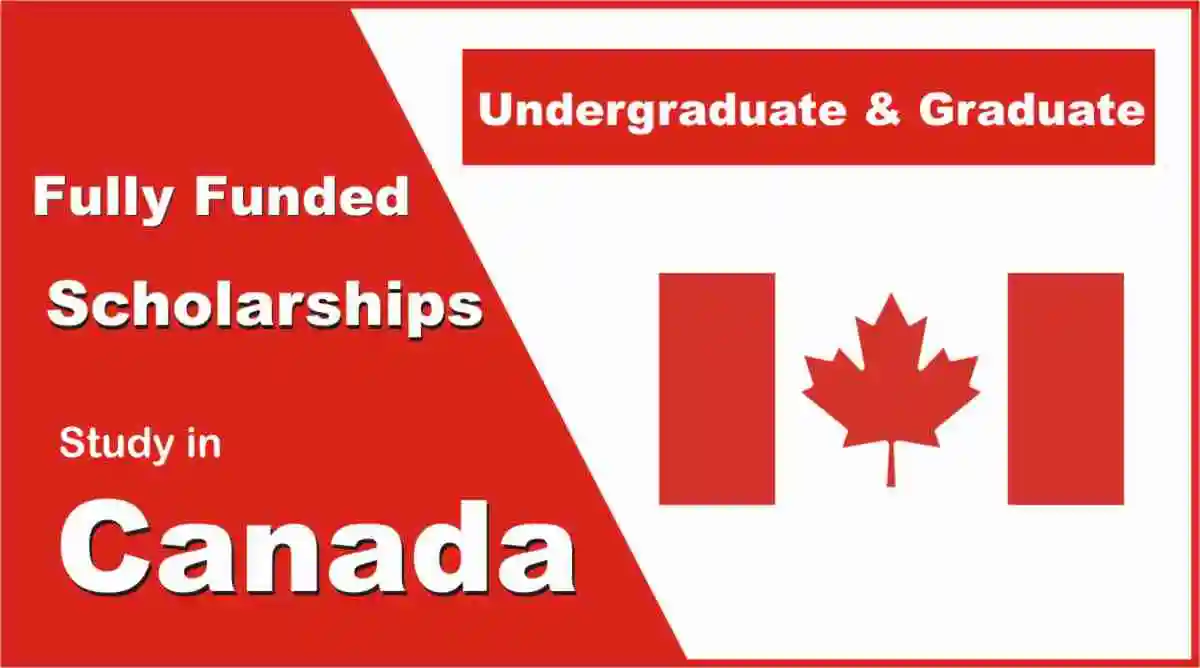Advertisements
So, you’re eyeing a study stint in the Great White North, eh? Well, here’s the scoop: Canada boasts a bounty of scholarships catering to both Canadian and international students. The secret sauce? Identifying the scholarships you’re eligible for and crafting a standout application.
First off, let’s talk strategy: research is your golden ticket. Scout websites like ScholarshipsCanada.com, UniNet, and the institutions you’re eyeing. Hunt down scholarships that align with your strengths, be it academics, sports, community service, or hobbies. Remember, the more tailored the scholarship, the higher your odds.
Now, onto the nuts and bolts. Follow the guidelines to a tee. Mind the deadlines, word counts, and formatting quirks. Ensure your application is shipshape, bundling transcripts, references, essays, or portfolios. Handing in an incomplete or late application is the express lane to rejection.
Speaking of essays, authenticity and zest are your allies. Share your relevant tales, ambitions, and aspirations. Paint a picture of how the scholarship will turbocharge your journey. Don’t shy away from seeking feedback and honing your essays to perfection.
You’ll also need recommendation letters from mentors who can vouch for your chops. Ask for these missives well in advance, briefing them on the scholarships to tailor their endorsements.
Armed with preparation, meticulousness, and a sprinkle of support from your squad, you’re good to go! Applying for scholarships calls for sweat equity, but the promise of a debt-free education in Canada is a prize worth chasing. Keep your sights locked on the goal and go claim that educational bounty, eh? You’ve got this!
Requirements for Obtaining a Scholarship in Canada
Obtaining a scholarship in Canada can be a highly competitive process, as numerous factors are considered in the selection of recipients. While specific requirements may vary depending on the scholarship program, there are common criteria that applicants should be aware of. Here are the key requirements for obtaining a scholarship in Canada:
- Academic Excellence: Most scholarship programs in Canada place a strong emphasis on academic performance. Applicants are typically required to demonstrate high academic achievement, usually through a minimum grade point average (GPA) or equivalent academic credentials. Strong performance in relevant subjects or fields of study may also be considered.
- Admission to an Accredited Institution: Many scholarships require applicants to be admitted to or enrolled in an accredited Canadian institution, such as a university, college, or technical school. Proof of admission or enrollment may be required as part of the application process.
- Field of Study: Some scholarships are specific to certain fields of study or disciplines. Applicants may need to demonstrate their interest and commitment to a particular area of study, such as STEM (science, technology, engineering, and mathematics), humanities, social sciences, business, or the arts.
- Research or Project Proposal: For research-based scholarships or those targeting graduate students, applicants may be required to submit a research proposal outlining their proposed project or study plan. The proposal should demonstrate the applicant’s research interests, objectives, methodology, and potential impact.
- Extracurricular Activities and Leadership: Scholarship selection committees often look for candidates who have demonstrated leadership skills, involvement in extracurricular activities, and a commitment to community service or volunteer work. Applicants should highlight their participation in clubs, sports teams, student organizations, volunteer projects, or leadership roles.
- Letters of Recommendation: Many scholarship applications require letters of recommendation from teachers, professors, employers, or mentors who can attest to the applicant’s academic abilities, character, and potential for success. Choose individuals who know you well and can provide strong, personalized recommendations.
- Personal Statement or Essay: Applicants may be asked to submit a personal statement or essay as part of their scholarship application. This essay provides an opportunity for applicants to showcase their academic goals, career aspirations, personal experiences, and reasons for applying for the scholarship. It should be well-written, compelling, and tailored to the specific scholarship program.
- Financial Need (if applicable): Some scholarships are awarded based on financial need, particularly for students facing financial hardship or other barriers to education. Applicants may need to provide documentation of their financial situation, such as income statements or proof of expenses.
- Citizenship or Residency Status: Scholarship eligibility may be restricted to Canadian citizens, permanent residents, or international students with valid study permits. Applicants should carefully review the eligibility criteria to ensure they meet the citizenship or residency requirements.
- Language Proficiency: For international students, proficiency in English or French may be required, depending on the language of instruction at the institution. Applicants may need to provide proof of language proficiency through standardized tests such as the TOEFL or IELTS for English or the DELF or DALF for French.
- Compliance with Scholarship Terms and Conditions: Applicants should carefully review the terms and conditions of the scholarship program, including any specific requirements, obligations, or restrictions associated with the scholarship. This may include maintaining a minimum GPA, participating in certain activities or events, or fulfilling other scholarship requirements.
By understanding and meeting these requirements, applicants can enhance their chances of obtaining a scholarship in Canada. It’s important to thoroughly research scholarship opportunities, carefully review the eligibility criteria, and submit a strong and well-prepared application that showcases your qualifications, achievements, and potential for success.
Steps to Apply for a Scholarship in Canada
Canada, known for its world-class education system and diverse opportunities, attracts students from around the globe seeking quality education. One of the most appealing aspects of studying in Canada is the availability of scholarships that can significantly alleviate the financial burden of tuition fees and living expenses. However, navigating the scholarship application process can be daunting for prospective students. Here’s a comprehensive guide on how to apply for scholarships in Canada:
- Research Scholarship Opportunities: Start by researching the various scholarship opportunities available in Canada. Universities, colleges, government agencies, private organizations, and international organizations offer a wide range of scholarships for both domestic and international students. Explore scholarship databases, university websites, and government portals to identify potential opportunities.
- Check Eligibility Criteria: Carefully review the eligibility criteria for each scholarship opportunity to determine if you meet the requirements. Eligibility criteria may include academic merit, extracurricular achievements, financial need, field of study, citizenship status, and more. Focus on scholarships that align with your qualifications and background.
- Prepare Required Documents: Gather all the necessary documents required for the scholarship application process. Common documents may include academic transcripts, letters of recommendation, personal statements or essays, proof of extracurricular activities or community involvement, standardized test scores (such as TOEFL or IELTS for international students), and financial statements.
- Start Early: Scholarship deadlines can vary widely, so it’s essential to start the application process as early as possible. Some scholarships have application deadlines several months before the start of the academic year, so plan ahead and give yourself ample time to gather documents, write essays, and complete the application process.
- Write a Compelling Personal Statement/Essay: Many scholarship applications require a personal statement or essay where you can showcase your academic achievements, career goals, extracurricular activities, leadership skills, and reasons for applying for the scholarship. Craft a compelling and well-written essay that highlights your strengths and demonstrates why you deserve the scholarship.
- Obtain Letters of Recommendation: Reach out to teachers, professors, employers, or mentors who can provide strong letters of recommendation to support your scholarship application. Choose individuals who know you well and can speak to your academic abilities, character, and potential for success.
- Submit Your Application: Complete the scholarship application form accurately and submit it along with all required documents before the deadline. Double-check your application to ensure that all information is correct and that you have included all necessary documents. Late or incomplete applications may not be considered for the scholarship.
- Follow Up: After submitting your application, follow up with the scholarship provider to confirm that they have received your application and that it is complete. Stay organized and keep track of any correspondence or communication regarding your application.
- Prepare for Interviews (if applicable): Some scholarship programs may require applicants to participate in interviews as part of the selection process. Prepare for interviews by researching the scholarship provider, practicing common interview questions, and showcasing your enthusiasm and qualifications.
- Stay Persistent and Positive: Scholarship selection processes can be competitive, and not all applicants will be successful. If you receive a rejection, don’t be discouraged. Continue to explore other scholarship opportunities and keep applying. Persistence and determination can ultimately lead to success.
In conclusion, applying for scholarships in Canada requires careful planning, thorough research, and diligent preparation. By following these steps and staying organized, you can increase your chances of securing financial assistance to pursue your education in Canada. Remember to start early, showcase your strengths effectively, and remain persistent in your pursuit of scholarship opportunities. With dedication and effort, you can turn your academic aspirations into reality in Canada.
Advertisements






